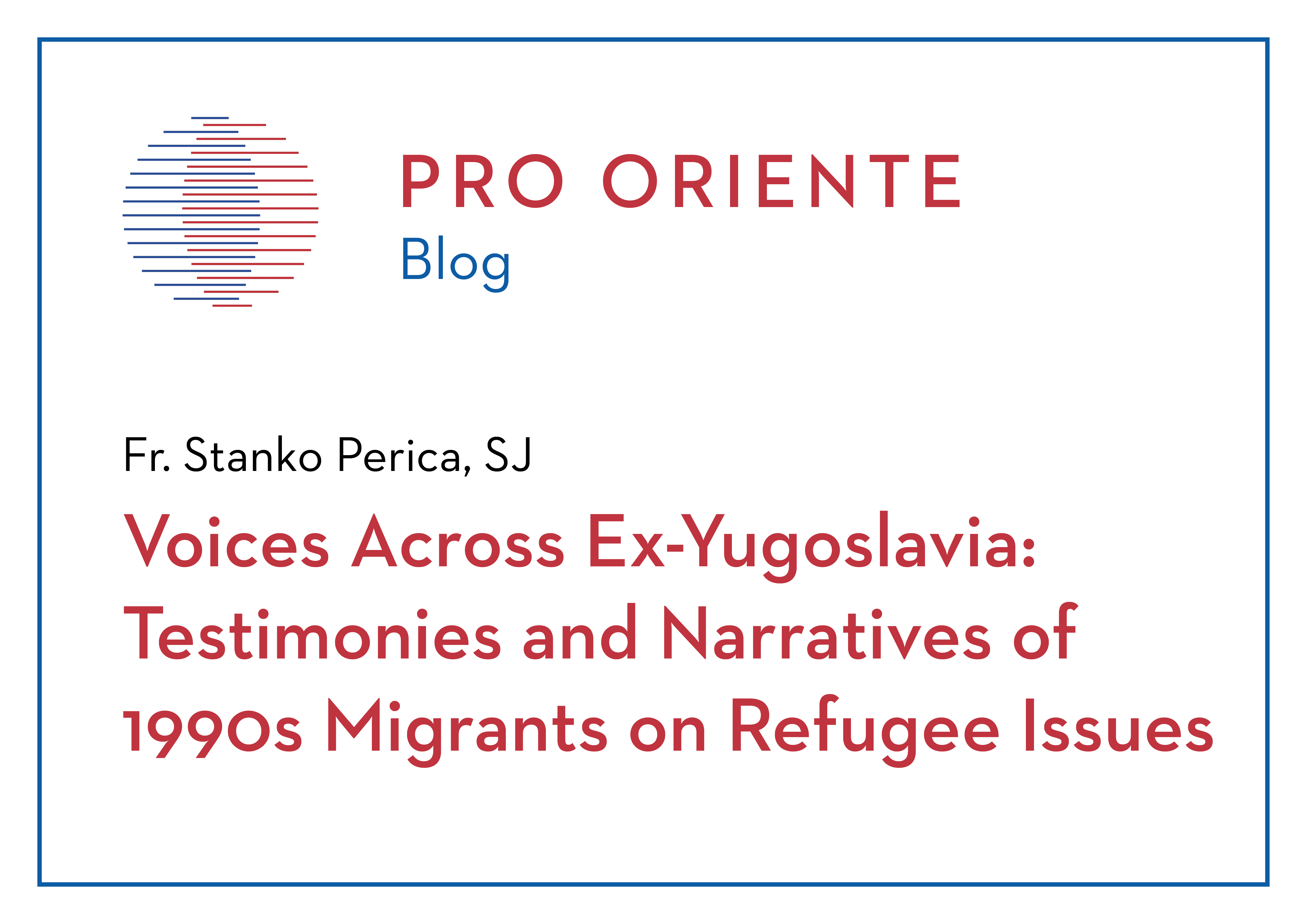Voices Across Ex-Yugoslavia: Testimonies and Narratives of 1990s Migrants on Refugee Issues
19. August 2024
Thema: Healing of Wounded Memories

Each refugee crisis is a tragedy. It means that there is a war, violence, political or religious persecution, some natural disaster or unbearable influence of climate change, or perhaps people are escaping from extreme poverty. Refugees present a collision with reality, with the world that is full of injustices and suffering. As is always the case with the bad news, there are two basic ways to cope with it: to deny and disregard it, or to allow ourselves to be moved by it.
Zygmunt Bauman points out that modern migrants frighten us because they remind us of the vulnerability of our position and the fragility of our hard-won prosperity. They are bearers of bad news because they witness that globalization, which has raised our standard of living in the West, simultaneously produces poverty and misery in the East and South. Solving this problem would require systematic changes, efforts, and sacrifices, so it is simpler to blame and punish the bearers of such bad news. Therefore very few politicians who aspire to power can resist the temptation not to exploit the disturbances caused by the increased influx of migrants and to point out the dangers that come with them: terrorism, Islamization, the arrival of cheap labor, living off welfare benefits, etc. Politicians create, claims Bauman, a false sense of comfort by hiding the problem out of sight, which is a suicidal policy that accumulates explosives for future detonation.
On the other hand, if we allow ourselves to be moved by the refugee crisis, then we inevitably notice that we need to work on creation of a new world, world where people wouldn’t have to search for a refuge, but if they did, they would be welcomed and hosts would share their resources with them. In other words, we need a world of fraternity. Pope Francis highlights that there are no solid and stable reasons for an appeal to fraternity without an openness to the Father of all. Only when we are aware that we are children of the same dignity, we can we live in peace with one another. Reason by itself, says the Pope, is capable of grasping the equality between men and of giving stability to their civic coexistence, but it cannot establish fraternity. This means that faith and theology are best equipped to give an adequate and meaningful answer to a refugee crisis.
The migrant crisis that has been active in the Balkans since 2015, was met with both kinds of responses. Many greeted the migrants with contempt, but many welcomed them as well. The way the EU treats migrants, and especially the recently agreed Pact on Migration and Asylum, hint that the countries of our region will have even more to do with migrants. It will be a major challenge for the Christian Churches in our region, but also an opportunity for the renewal of Christian values. Our Churches have lost a significant part of their influence through secularization, but in the migrant crisis they could find an opportunity for a turnaround towards fundamental values, brotherhood and solidarity.
In Jesuit Refugee Service (JRS) we try to be the beacons of this initiative. We not only help migrants, but try to form networks of solidarity. As Nobel prize winner Ivo Andrić famously puts it in his novel The Bridge on the Drina, ‟Nothing brings men closer than a common misfortune happily overcome.” Ukrainian refugees’ misfortune connected us with the Orthodox Church in Zagreb, through the common project of Croatian language courses. Misfortune of migrants in Una-Sana canton in north-west Bosnia connected us with the Orthodox parish priest, together with whom we help migrants, but also invest in furnishing the church.
Similar efforts were done by JRS during the wars in the nineties. Fr. Stjepan Kušan, the Croatian Jesuit that founded JRS in the region in 1993, didn’t hesitate to help Serbs and Muslims when it was needed. In eyes of many this made him be considered Yugo-nostalgic and friendly towards the enemy. Fr. Kušan testifies that this made him angry and caused great desolation. One day a newspaper article titled “Jesuits are cleaning Serbian mess” appeared in a Croatian weekly. A whole lot of angry people called over the next two days, protesting against the action of JRS. What they had done was to organise a group of 5 Serbian and 5 Croatian young men to clean out a Serbian Orthodox monastery near Knin and put the library in order. The Jesuit Provincial had to defend Fr. Kušan even against angry fellow Jesuits.
In the Balkans we are often disappointed because of lack of ecumenical progress. When the Archbishop of Canterbury Robert Runcie, complained to Pope John Paul II for the lack of progress in relations between Anglicans and Catholics, the Pope took Runcie’s arm and said, ‟Our affective collegiality will lead eventually to effective communion.” Friendship comes first, everything else follows. For us Christians, a refugee crisis is an invitation to friendship, to brotherhood. It reminds us of a basic aspect of our faith, that we are ‟strangers and exiles on the earth” (Heb 11:13). Let’s hope and let's make an effort that it may move us to love one another more.



